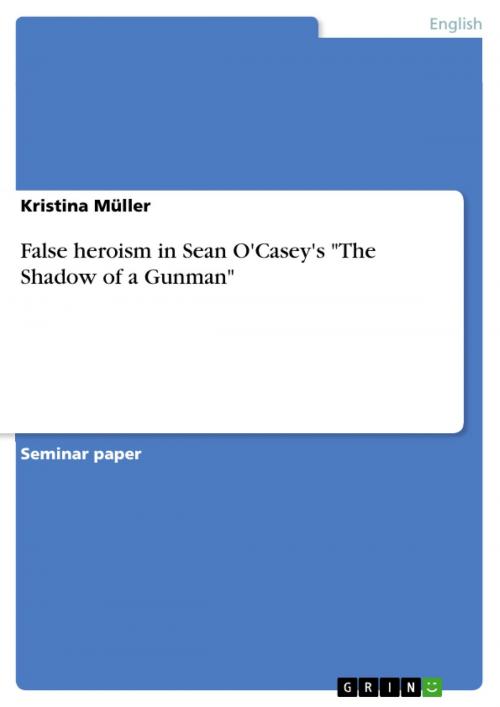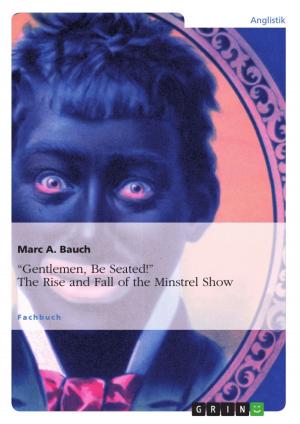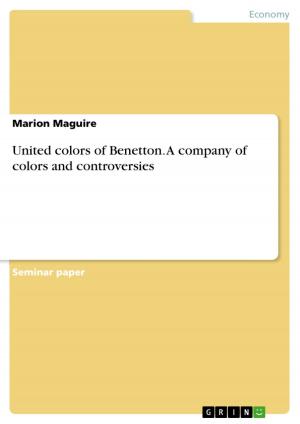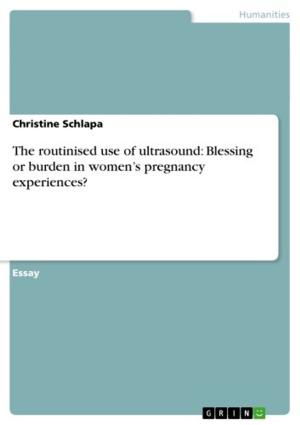False heroism in Sean O'Casey's 'The Shadow of a Gunman'
Nonfiction, Entertainment, Drama, Anthologies| Author: | Kristina Müller | ISBN: | 9783638495868 |
| Publisher: | GRIN Publishing | Publication: | April 28, 2006 |
| Imprint: | GRIN Publishing | Language: | English |
| Author: | Kristina Müller |
| ISBN: | 9783638495868 |
| Publisher: | GRIN Publishing |
| Publication: | April 28, 2006 |
| Imprint: | GRIN Publishing |
| Language: | English |
Seminar paper from the year 2004 in the subject American Studies - Literature, grade: 2,3, University of Trier, 14 entries in the bibliography, language: English, abstract: 'The Shadow or a Gunman' was written in 1922 and first performed in 1923 when the Irish civil war that concluded the Anglo-Irish War was still raging between the Irregulars and Sinn Féin ('we ourselves'). The 'Shadow' was performed in the Abbey Theatre, the only theatre that was still open, in the middle of April 1923. It was performed near the end of the theatre season to make sure that the Abbey would not lose much money if it flopped (Murray 44). But it did not, in fact it became one of the most popular Irish anti-war plays in the 1920s. 'The Shadow of a Gunman' was O'Casey's first play to be accepted by the Abbey. His earlier attempts to find the balance in his art between politics and entertainment failed (like 'The Harvest Festival') (Murray 5), but with the 'Shadow' he finally managed to write 'a mixture of comedy and political commentary' (Murray 5) or 'A tragedy in two acts' as he called it himself. After the Easter Rising of 1916 when some 'Volunteers' and members of the 'Irish Citizen Army' tried to rise an armed rebellion against the British forces, a guerrilla war began in 1917 between the Irish Republican Army, a successor of the banned nationalist movements, and the 'Black and Tans', British special force troops sent to support the Royal Irish Constabulary that consisted mainly of veterans of Worl d War I. The 'Black and Tans' got their name from their famous black and khaki uniform. Until July 11th1921 both parties fought each other in armed attacks. The British sent more and more soldiers (overall several tens of thousands were sent) until the Irish gave up when the activists ran out of weapons and people.
Seminar paper from the year 2004 in the subject American Studies - Literature, grade: 2,3, University of Trier, 14 entries in the bibliography, language: English, abstract: 'The Shadow or a Gunman' was written in 1922 and first performed in 1923 when the Irish civil war that concluded the Anglo-Irish War was still raging between the Irregulars and Sinn Féin ('we ourselves'). The 'Shadow' was performed in the Abbey Theatre, the only theatre that was still open, in the middle of April 1923. It was performed near the end of the theatre season to make sure that the Abbey would not lose much money if it flopped (Murray 44). But it did not, in fact it became one of the most popular Irish anti-war plays in the 1920s. 'The Shadow of a Gunman' was O'Casey's first play to be accepted by the Abbey. His earlier attempts to find the balance in his art between politics and entertainment failed (like 'The Harvest Festival') (Murray 5), but with the 'Shadow' he finally managed to write 'a mixture of comedy and political commentary' (Murray 5) or 'A tragedy in two acts' as he called it himself. After the Easter Rising of 1916 when some 'Volunteers' and members of the 'Irish Citizen Army' tried to rise an armed rebellion against the British forces, a guerrilla war began in 1917 between the Irish Republican Army, a successor of the banned nationalist movements, and the 'Black and Tans', British special force troops sent to support the Royal Irish Constabulary that consisted mainly of veterans of Worl d War I. The 'Black and Tans' got their name from their famous black and khaki uniform. Until July 11th1921 both parties fought each other in armed attacks. The British sent more and more soldiers (overall several tens of thousands were sent) until the Irish gave up when the activists ran out of weapons and people.















